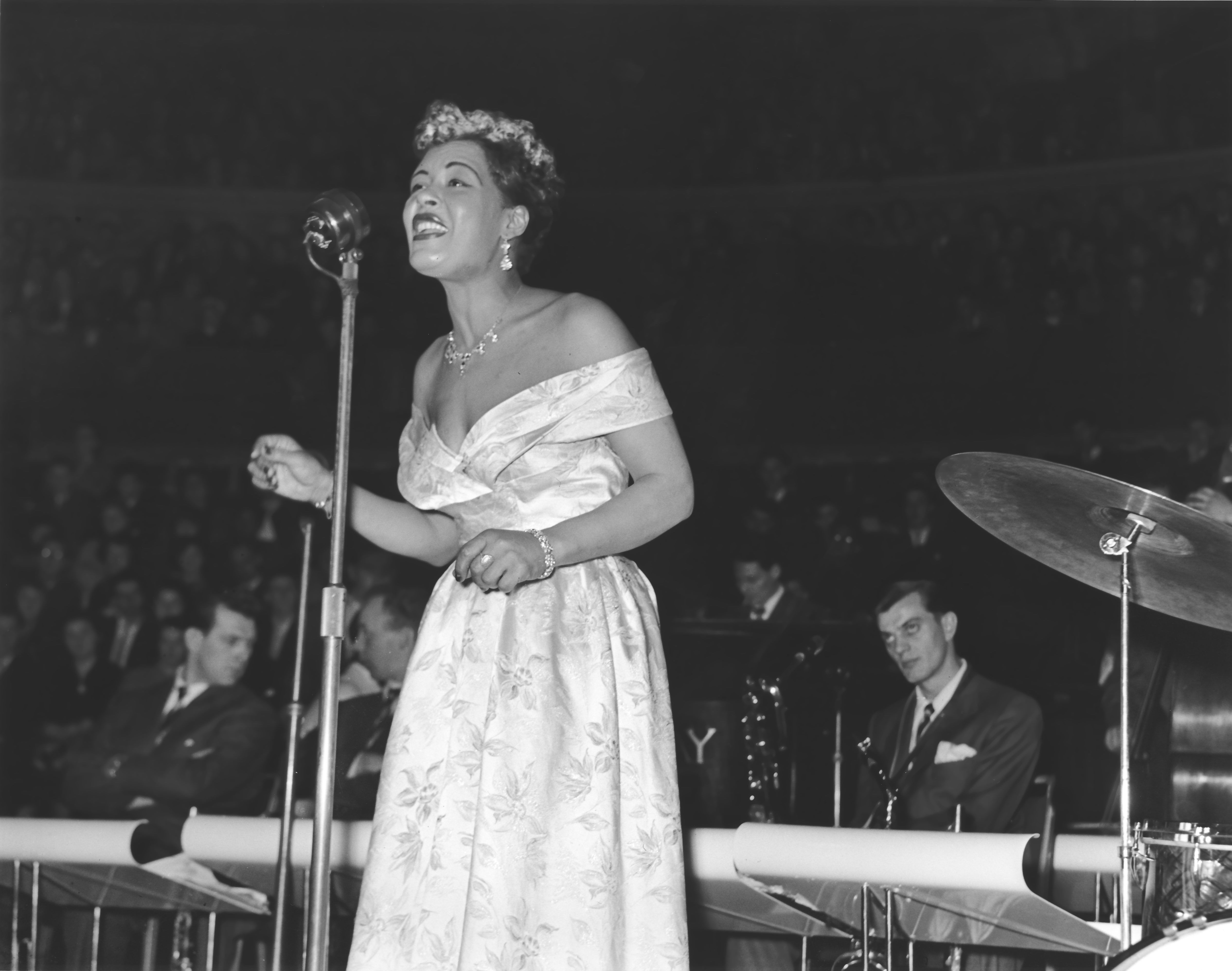What Is Billie Holiday’s Real Name?
Billie Holiday will forever be known for her soulful voice. A product of the 1920s jazz era, the “God Bless the Child” performer has become a cultural icon.
Her provocative sound continues to catch the attention of artists around the world. Combined with her songwriting skills, Holiday had a talent for turning any ballad into her own version of creativity and perfection. Unbeknownst to many, the talented musician was born under a different name.

The making of a musical icon
Billie Holiday had a tumultuous childhood, according to her website. She was often neglected and abused by acquaintances of her young mother. At a mere nine years of age, the songstress was forced to live in a facility for troubled African American girls.
Enduring both sexual and physical abuse as a child, Holiday moved to New York City with her mother and started working as a prostitute at only 13 years of age.
Holiday found solace in the sounds of jazz greats such as Louis Armstrong and Bessie Smith. Despite having no professional training and unable to read music, the determined singer started auditioning in Harlem nightclubs.
By the age of 18, Holiday had survived hardships that many an adult would never be able to endure. Producer John Hammond saw Holiday perform and was captivated by her powerful presence. He introduced her to bandleader Benny Goodman.
Making memorable music was just what Billie Holiday did
Holiday’s first commercial release was singing the vocal tracks for Goodman on “Your Mother’s Son-In-Law.” In 1934, she recorded her top 10 hit, “Riffin’ the Scotch.”
The following year, the melancholy singer performed with Duke Ellington in the movie Symphony in Black. She also released “Miss Brown to You” and “What a Little Moonlight Can Do.”
In 1937, now known by the nickname of “Lady Day,” Holiday started touring with the Count Basie Orchestra. She also worked with Artie Shaw, becoming the first female African American singer involved with an all-white orchestra.
As Holiday matured, so did her signature style. She began wearing gardenia flowers in her hair and developed an onstage persona of tilting her head back when she sang.
She started writing songs about personal experiences, such as “My Man” and “T’aint Nobody’s Business If I Do.” The controversial ballad about lynching, “Strange Fruit,” became one of her most recognized songs.
The name Billie Holiday was born with
On April 7, 1915, Holiday was born to unwed teen parents in Philadelphia. She was given the name Eleanora Fagan. Biography.com states that “some sources say her birthplace was Baltimore, Maryland, and her birth certificate reportedly reads ‘Elinore Harris.'”
Regardless of what she was born into, Holiday changed her name in the early ’20s while singing in Harlem nightclubs. She chose Billie because of an actress that she admired, Billie Dove. Her last name, Holiday, came from her biological father, jazz musician Clarence Holiday.
The dynamic singer lived a short life, tragically dying in 1959 from drug and alcohol related complications. She was only 44 years of age.
The legacy of Billie Holiday
By 1947, the young musician found herself addicted to heroin. She was sentenced to a federal facility after being arrested for narcotics possession. No longer able to work in clubs, she began playing concert halls. Shortly after her release, Holiday performed to a sold-out crowd at Carnegie Hall.
In 1956, Holiday wrote her autobiography, Lady Sings the Blues, depicting the tales and horrors of her upbringing and rise to fame in the entertainment industry. In 1972, the book became a popular film starring Diana Ross.
Holiday, who performed for several decades, will forever be remembered as one of the best female jazz vocalists of all time. In 2000, the soulful singer was inducted into the Rock and Roll Hall of Fame.


